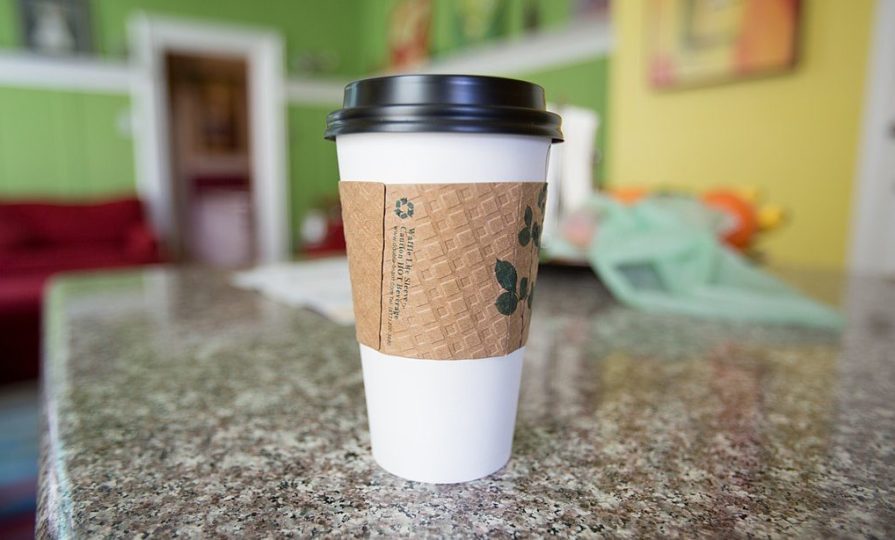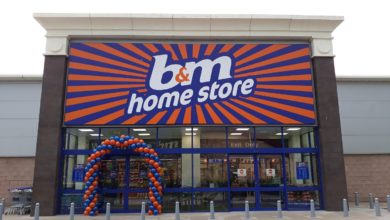Is free delivery becoming the ‘disposable coffee cup’ of the retail world?

Register to get 1 free article
Reveal the article below by registering for our email newsletter.
Want unlimited access? View Plans
Already have an account? Sign in
One of the biggest environmental challenges of our world is the disposable coffee cup. What was once seen as a helpful solution to the globe’s growing desire for hot drinks on-the-go has since been proven as having a catastrophic impact on our environment. In fact, in 2017 it was reported the UK throws away on average a staggering 2.5 billion disposable coffee cups each year, and less than 1% of cups are recycled.
If we stop and think about it for a moment, this isn’t too dissimilar to the world of retail. Online merchants are offering free delivery in a large proportion of cases in order to meet consumer demand. A relatively new convenience that has changed buyer behaviour and now feels indispensable.
Much like the coffee cup though, has anyone taken a moment to think about the pollution levels as a result of vehicles up and down the country making deliveries for retailers, or the volume of plastic sent to landfill from the delivery and returns packaging?
Well, to try and quantify that, let’s start from the beginning. The UK spends more on online shopping than any other country. Card spending on the internet totalled £154bn in the UK in 2016, averaging £422m a day, figures from The UK Cards Association show. This is a rise of 28% since 2014, when online spending amounted to £120bn.
If the majority of retailers are offering free delivery, along with the option for free returns, it’s inevitable that more and more customers are going to use these services as a ‘try before you buy’, commitment-free exercise.
Now let’s consider what percentage of those, and the sheer volume of packages, could be referred to as ‘non-committal’; “I’ll pop it in my basket and give it a shot” items. When customers are not required to pay for either delivery or returns – they have no ‘skin in the game’ – there’s little to no value or commitment to the order in their minds.
If we look at Amazon as an example, while no figures of their carbon emission percentages have been disclosed, with 608 million packages annually, or approximately 1,600,000 packages a day, emissions are likely very high. Add to that the cardboard, plastic, and energy consumption of the packaging itself. The environmental impact is likely to be astronomical.
We’ve even seen stories recently of consumers taking the old hack of wear the garment for a night out, keep the tags on and then return it to whole new levels. Some Instagram users have recently been found to make large orders of desirable items such as the latest trainers, photograph themselves wearing them and return the whole order – without incurring a single cost themselves and leaving retailers to foot the bill. Put simply it is not sustainable for retailers to continue to maintain an environment that supports this type of societal behaviour shift.
It’s not just unsustainable for the planet, it’s unsustainable from a business perspective. Delivery and returns are costs that retailers cannot continue to absorb. This pricey back and forth of products has become the snake that eats its own tail – the whole offering has moved from being an added customer benefit, to a consumer expectation with merchants forced into offering the service for free. In the UK, the average returned purchase passes through seven pairs of hands before it is listed for resale. According to consulting firm KPMG, to pick and deliver an order costs between £3 and £10 – it can cost double or treble that to be processed on the way back through the supply chain.
This disparity is not shrinking, it’s worsening. Especially as the trend is moving toward faster, more immediate delivery, with exploration of packages dropped off via drones or other devices. Making it harder to group packages and reduce the number of deliveries and increasing costs.
With the volume of deliveries continuing to increase, combined with moves against single-use items such as coffee cups, plastic bags and carbon emissions targets at a governmental level; a delivery tax no longer feels like fiction. Therefore, retailers need to find ways to reduce the volume of returns and change consumer habits of non-committal purchases. That might be through innovative retail partnerships or implementing greater choice when it comes to services and payments. It’s time to act, because the unsustainable delivery outlook means a delivery tax could now be a when, rather than an if.
Gary Rohloff is the co-founder at digital payment company Laybuy







